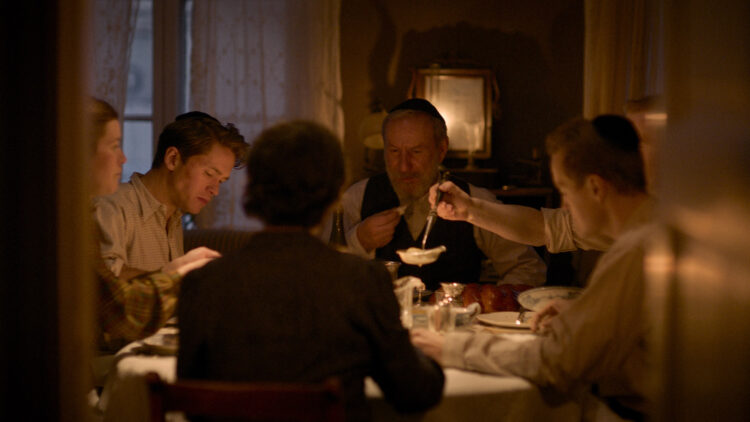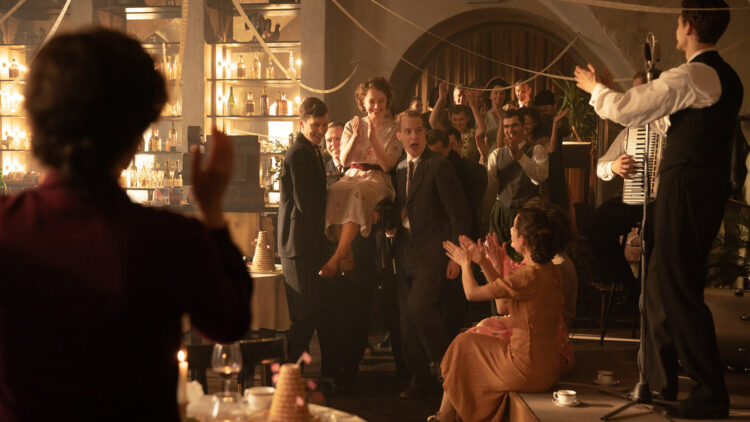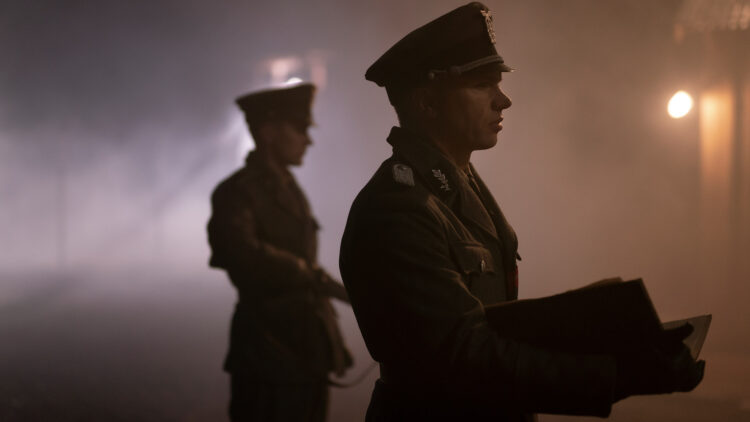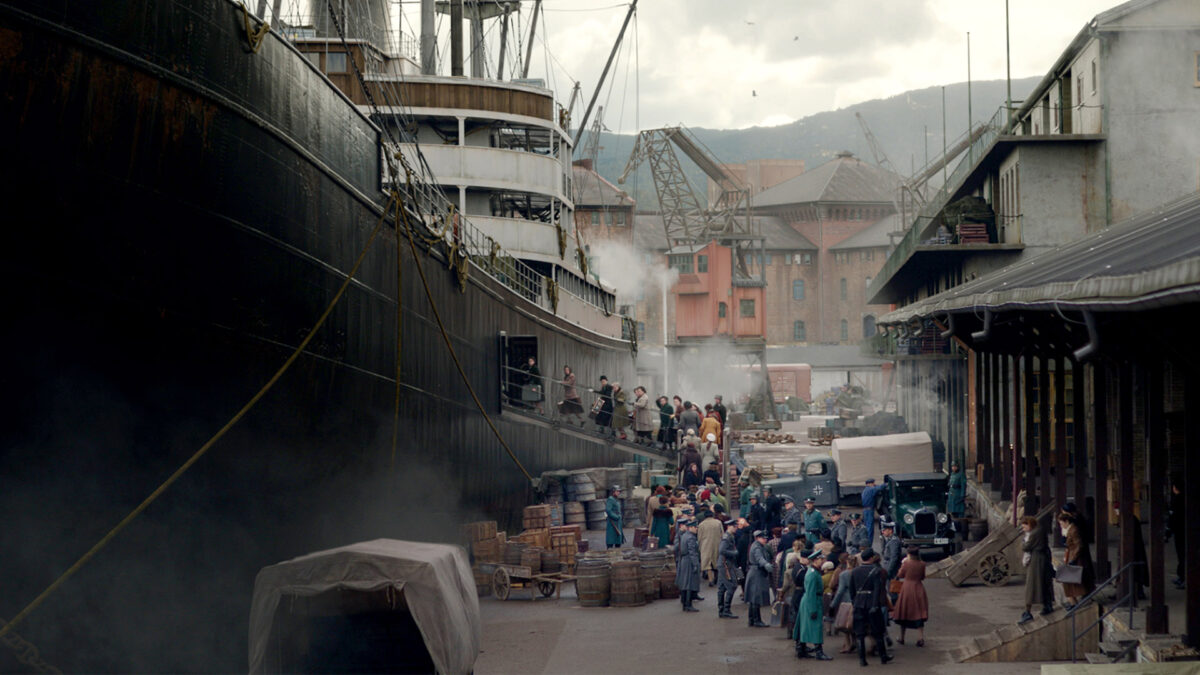Eirik Svensson’s spare, hard-hitting feature film, Betrayed, boldly exposes Norway’s heartless and callous betrayal of its Jewish community during the Holocaust.
Norway was occupied by Germany in April 1940, seven months after the outbreak of World War II. Norwegian collaborators, headed by Vidkun Quisling, cooperated with the invaders, even as underground fighters fought Germany’s occupation.
The Jews of Norway, numbering just over 2,000, were almost immediately marginalized and singled out for persecution and deportation to Norwegian internment and Nazi extermination camps.
Betrayed, which will be available on VOD platforms from December 3 onward, is based on real events, charting the bitter fate of Norway’s Jews through the experiences of the Braude family in Oslo. Benzel Braude and his wife, Sara, were Lithuanian Jews who settled in Norway long before the war. Their children, Charles, Isak, Harry and Helene, were native born.
The film starts two years into Germany’s takeover of this Nordic nation, then fast forwards to November 26, 1942. In a crowded room, a senior Norwegian police official tells policemen, “We have a monumental task before us, a matter of great prestige.” All Jewish men and women who have not already been arrested will be picked up, he says. This order applies to Jewish patients in hospitals. And there will be no exemptions.
As per German instructions, the Norwegian police are responsible for rounding up Jews. This was a policy that was put into practice by the Germans in every country they occupied, from France and Italy to Hungary and Romania.

At this point, Betrayed flashes back to 1939. Charles Braude (Jakob Oftebro), a vigorous young man, knocks out his Swedish opponent in a boxing match. He and his brothers, Harry and Isak, return to their parents’ home for a Sabbath meal. Benzel (Michaelis Koutsogian) and Sara (Pia Halverson) ooze pride as Charles recites a Jewish prayer.
In the following scene, Charles sheepishly tells Sara he’s fallen in love. Ragnhild (Kristine Kujath Thorp), the object of his desire, is not Jewish. This is not a problem, and the couple are married in a joyous ceremony.

With tensions rising in Europe, Sara expresses concern that a new war might affect them. Benzel blithely assures her they are safe in Norway.
Wishful thinking.
One early morning, sirens wail. Germany’s invasion has begun. Soon enough, German troops appear in Oslo. Reading the writing on the wall, Helene Braude escapes to neutral Sweden.
In a sign of the times, Charles’ boxing club is closed because its members have not pledged allegiance to Quisling’s fascist party. Considering himself Norwegian rather than Jewish, Charles is slow to recognize the dangers that confront him. In short order, Jews are required to register with the authorities and antisemitic edicts are announced.
On October 26, 1942, Charles is detained after he scratches the car of a local Nazi. He and his brothers and Benzel are taken to the Berg hard labor detention camp. The prisoners are warned they will be shot if they try to escape.
One of the camp’s commanders, having recognized Charles as an up-and-coming boxer, displays apparent compassion toward him. Benzel warns him to be careful.
In the meantime, Sara’s apartment, plus all her assets, are seized by the government. She’s visited by two officials who take an inventory of her possessions. She’s allowed to keep her engagement ring. “We’re not completely heartless,” says one of the officials self-servingly.
With Norwegian Jews are being stripped of their properties, Benzel’s shop is shuttered. An inscription on its window reads, “Jew. Closed.”
Ragnhild tries to help Sara, but her effort is in vain.
Knut Rod (Anders Danielson Lie), an assistant police chief in charge of deporting Jews, brazenly misleads a Jewish woman who asks whether trouble is looming. “We’re finally getting rid of them,” mutters his assistant.

On November 26, 1942, the Jewish inmates in Berg are divided into two groups. Some will be deported. Still others will be permitted to remain in Berg. On the same day, several hundred Jews, including Sara, boards the SS Donau, a ship en route to Germany.
On December 1, 1942, as the first trainload of Norwegian Jews reach Auschwitz-Birkenau, the screen goes temporarily black.
A total of 773 Norwegian Jews were deported to Auschwitz-Birkenau. Only 38 survived. The rest managed to find refuge in Sweden and Britain.
In 2012, Norway issued an official apology for its appalling mistreatment of its Jewish citizens. As Betrayed suggests, this gesture falls under the category of too little, too late.
